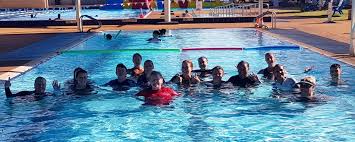
Lifesaving skills are a fundamental aspect of swim instruction, equipping both instructors and students with the knowledge and techniques to prevent and respond to emergencies in aquatic environments. These skills not only enhance safety but also build confidence and preparedness in the water, creating a secure setting for all participants. Here’s why lifesaving skills are essential in swim education and the broader aquatics community.
1. Enhances Safety in Aquatic Environments
Lifesaving skills are critical for ensuring safety during swim lessons and other aquatic activities. Instructors trained in skills such as CPR, water rescue techniques, and emergency response can quickly address incidents, minimizing risks and potentially saving lives. Lifesaving skills help instructors create a safe environment, giving parents and participants peace of mind.
2. Builds Confidence Among Students
When students are taught foundational lifesaving skills, they become more comfortable and confident in the water. Learning how to float, tread water, and safely enter and exit the pool are all basic techniques that help students feel secure. Confidence in these skills reduces fear and encourages further progress in learning how to swim.
3. Prepares Instructors for Emergency Situations
For swim instructors, having comprehensive lifesaving skills is essential for managing unexpected emergencies. Knowing how to perform basic first aid, identify risks, and respond effectively enables instructors to handle situations calmly and efficiently. This preparedness is especially important in busy or open water environments, where the ability to respond swiftly can be lifesaving.
4. Promotes Awareness of Water Safety
Lifesaving education emphasizes the importance of water safety practices, helping students and instructors understand potential risks in different aquatic settings. This awareness fosters safe behaviours, such as swimming with a buddy and avoiding dangerous areas, which students carry with them beyond the pool, contributing to safer communities.
5. Encourages a Lifelong Respect for Water
Learning lifesaving skills at a young age instills respect for the water, as students gain an understanding of its power and the importance of caution. This respect promotes a lifelong commitment to safe swimming practices and empowers individuals to help others in need, reinforcing the value of safety in all aquatic activities.
Conclusion
Lifesaving skills are a cornerstone of effective swim instruction, enhancing safety, building confidence, and fostering respect for water safety among both instructors and students. By teaching and practicing these essential skills, aquatic programs contribute to a culture of safety, ensuring that all participants can enjoy the water securely and responsibly.
